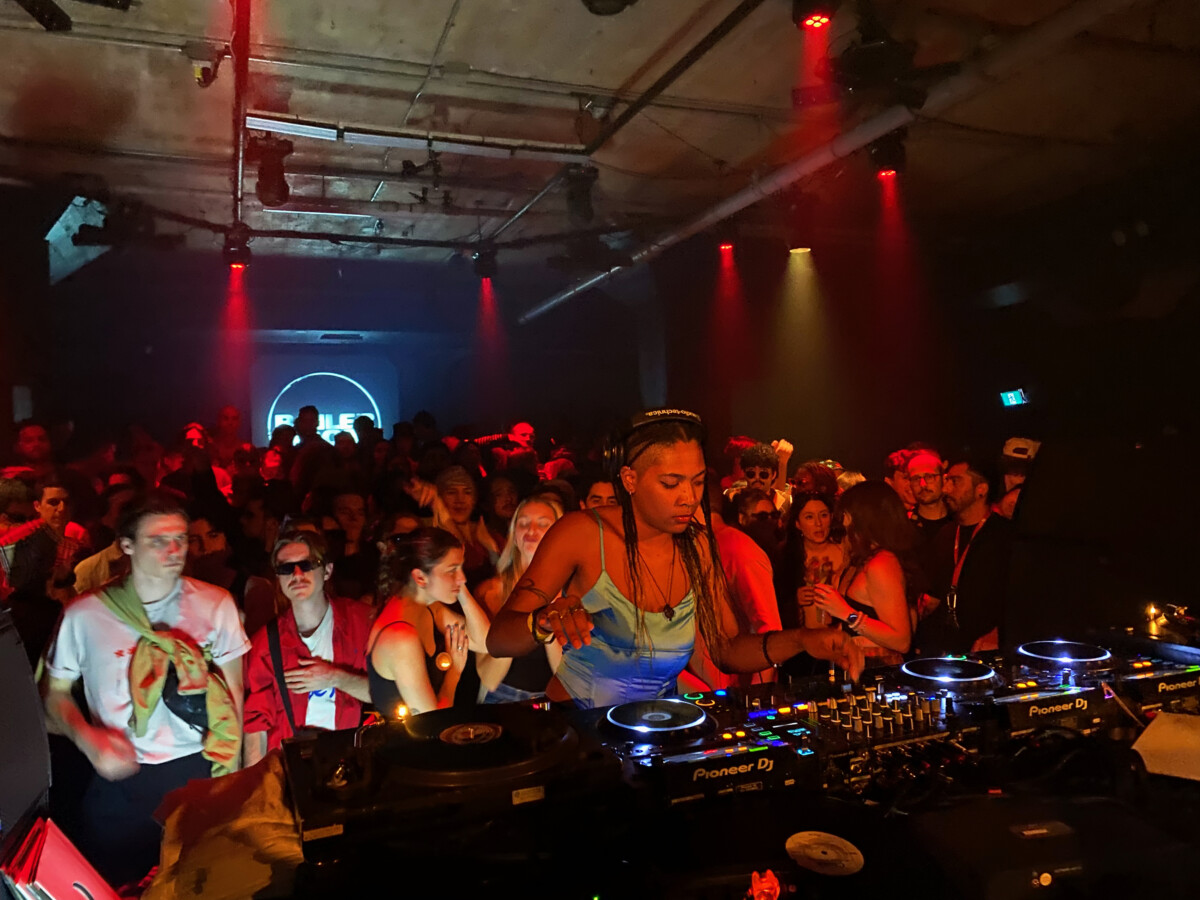The hottest club culture event took place in the city for the first time in over a decade.
On Nov. 10-11, Montreal hosted a Boiler Room event for the first time in over a decade. Succeeding the last edition from 2013, which included KAYTRANADA’s now-legendary DJ set, this year’s edition brought forward six local collectives across two nights to highlight three of the city’s key music scenes: Afrobeats, queer club music and techno/house.
The event was held at Hall Ste-Catherine, which used to be Montreal’s Circus Afterhours nightclub. The venue contains three rooms, each of which was designated to a different group each night. They were connected by hallways which facilitated navigation between them. There was easy access to bars and benches in every room, which allowed attendees to grab either a drink or a seat whenever they pleased.
Mansa kicked off Afrotonik’s party in one room, raising the energy bar to a high that was maintained for the hours that followed. This medium-sized room was complete with several screens behind the DJ setup and a bar in the center. Her set was a blend of traditional Afrobeats songs and amapiano (a South African afro-house subgenre) with hints of contemporary music. A DJ of Malian origins, she also highlighted the most prominent Black women in music (such as Beyoncé and Rihanna) by fusing their modern hits with African music styles. Her song selection garnered excited reactions from the crowd, especially with her fast-paced mix of Sexyy Red’s “SkeeYee,” which ended her set. Her performance also emphasized the venue’s immaculate sound quality, as the trademark stabs of bass in amapiano music sounded perfectly full and heavy.
Later in the lineup, DJ Karaba would bring a house flavour, energizing the crowd with afro-house spins on popular tracks like Modjo’s “Lady (Hear Me Tonight)” and Nelly Furtado’s “Say It Right.” Fusing Afrobeats with hit songs proved to be an effective formula throughout the night.
Mootanda followed up with a rap spin, providing combinations of hip-hop and afro-house. I found myself going lyric for lyric and dancing with others as renditions of various hit songs like “Dior” (Pop Smoke), “fukumean” (Gunna) and “The Box” (Roddy Ricch) rang out through the speakers. Afrotonik entertained a crowd that sang, danced and grew increasingly throughout the night, arguably becoming the most crowded room by the end of the event.
Homegrown Harvest was simultaneously playing in the biggest room which featured a trademark Boiler Room setup: the DJ decks in the middle, with the crowd surrounding it. A stage also elevated the crowd behind the booth, accentuating the audience’s presence and role in the event. One of its DJs was Lia Plutonic, whose set was full of infectious house tracks with bouncy drum patterns and even some Jersey Club music sprinkled in. These songs featured different buildups, pauses and even jazz breaks that triggered crescendos in the crowd’s excitement, allowing the excitement to relax, rise, release and then rebuild. Lis Dalton followed up with an even more addictive set which blended house and UK garage drums with swirling, hypnotic loops. It’s the type of trance any clubgoer would want to fall into during a Boiler Room set.
The inclusion of traditional elements into the different sets was noteworthy, with analog practices serving as extensions of the musical experience. Afrotonik had a live drum player on the first night who was mic’d up in a way that allowed the drums to be perfectly audible and seamlessly included in the mix. Meanwhile, Lia Plutonic bridged traditional and modern DJ practices together by mixing with vinyl records in addition to the digital, Pioneer CDJ player and mixer setup.
Boiler Room lived up to the hype. It gave attendees the chance to cut loose and engage in the music individually, as well as to connect with friends and strangers alike. The musical showcase resonated with the crowd and effectively highlighted the mix of cultures and musical styles that define Montreal. Hopefully, we won’t have to wait ten years for the next one.
